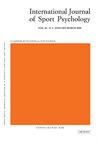Rule formation and table tennis performance following explicit and analogy learning over 10,000 repetitions.
IF 0.6
4区 心理学
Q4 HOSPITALITY, LEISURE, SPORT & TOURISM
引用次数: 21
Abstract
We investigated acquisition and performance during explicit and analogy learning over many repetitions, with a specific interest in changes in the robustness of performance under increased pressure. Explicit and analogy learning groups performed 10,000 table tennis forehand strokes, evenly distributed over six weekly sessions. Explicit learners reported more explicit rules about movement execution than analogy learners, even though this number declined from 1,400 to 10,000 repetitions. Furthermore, performance of the analogy group seemed to asymptote after 1,400 repetitions, while that of the explicit group continued to increase. Despite differences in rule formation, neither group appeared to show performance decrements under pressure or secondary task loading after 1,400 or 10,000 repetitions. All in all these findings do not provide grounds for minimizing the accumulation of explicit knowledge in learning in view of its potentially detrimental effects on performance. 45 Introduction Providing verbal instructions is a common practice in many forms of perceptual-motor teaching under the supervision of a coach or trainer. In the course of skill acquisition, such instructions amass to a pool of explicit knowledge, that is, knowledge about movement execution that the learner is aware of and thus can verbalize. In recent years, however, the effectiveness of providing verbalizable rules in perceptual-motor acquisition has been questioned. Evidence has been presented indicating that withholding learners from accruing explicit rules about movement execution results in performance advantages when performance pressure increases or when performing under secondary task loading To explain these findings, it has been argued that under increased performance pressure, stored explicit rules can be activated in working memory to interfere with proceduralized movement control, thereby disrupting fluent and automated movement execution (Masters & Maxwell, 2004). This line of reasoning is known as the reinvestment or explicit control hypothesis. The greater dependence of explicitly learned skills on working memory would also result in a capacity overload when a secondary task is introduced, whereas implicitly learned skills would allow execution of a secondary task without performance decrements as a result of reduced demands on working memory. The aforementioned evidence of impaired performance of explicitly learned skills under certain demanding circumstances suggests that working memory involvement in learning is not necessarily advantageous. However, in an unrestricted environment, perceptual-motor learners are bound to test movement-related hypotheses in working memory, potentially leading to the accumulation of explicit rules about movement execution To insure that learning is implicit, such hypothesis testing should be prevented. Masters …规则的形成和乒乓球表演通过明确和类比学习超过10,000次重复。
我们研究了在多次重复的显性和类比学习期间的习得和表现,对压力增加下表现稳健性的变化特别感兴趣。显性学习组和类比学习组进行了1万次乒乓球正手击球,平均分布在每周6次的学习中。显性学习者报告的动作执行规则比类比学习者更明确,尽管这个数字从1400次下降到10000次。此外,类比组的表现在重复1400次后趋于渐近线,而外显组的表现继续提高。尽管在规则形成方面存在差异,但在1400次或10000次重复后,两组在压力或次要任务负荷下的表现都没有下降。总而言之,这些发现并没有为最小化显性知识的积累提供依据,因为它对学习表现有潜在的有害影响。在许多形式的知觉运动教学中,在教练或培训师的监督下提供口头指导是一种常见的做法。在技能习得的过程中,这些指令聚集成一个显性知识池,即学习者意识到的关于动作执行的知识,因此可以用语言表达。然而,近年来,在知觉运动习得中提供可语言规则的有效性受到了质疑。已有证据表明,当表现压力增加或在次要任务负载下执行时,不让学习者积累有关动作执行的明确规则会导致表现优势。为了解释这些发现,有人认为,在表现压力增加的情况下,工作记忆中存储的明确规则可以被激活,从而干扰程序化的动作控制。从而破坏流畅和自动化的动作执行(Masters & Maxwell, 2004)。这种推理思路被称为再投资假说或显性控制假说。显性学习技能对工作记忆的依赖性越大,在引入辅助任务时也会导致容量过载,而隐性学习技能允许执行辅助任务而不会因工作记忆需求减少而导致性能下降。上述证据表明,在某些苛刻的环境下,明确学习技能的表现受损,这表明工作记忆参与学习并不一定是有利的。然而,在不受限制的环境中,知觉运动学习者必然会在工作记忆中测试与运动相关的假设,这可能会导致运动执行的显性规则的积累。为了确保学习是内隐的,这种假设测试应该被阻止。主人……
本文章由计算机程序翻译,如有差异,请以英文原文为准。
求助全文
约1分钟内获得全文
求助全文
来源期刊
自引率
12.50%
发文量
0
审稿时长
>12 weeks
期刊介绍:
The International Journal of Sport Psychology publishes empirical and theoretical contributions in the human movement sciences from all over the world. Manuscripts related to psychology, sport pedagogy, exercise and sport performance are suited to the Journal''s scope.
IJSP''s aims are to disseminate results of rigorous and relevant studies, to expose positions and commentaries regarding the development of theory and confirmation or contradiction of previous findings. IJSP entertains various methodologies encompassing coherence among epistemology, research questions, tools, statistical or clinical analyses and discussion or potential applications. Qualitative and quantitative analyses as well as case studies are of interest when appropriately used. IJSP is comprised of the following sections related to human movement sciences:
-Motor learning and control
-Cognition
-Health and exercise
-Social psychology
-Intervention / Clinical / counseling psychology

 求助内容:
求助内容: 应助结果提醒方式:
应助结果提醒方式:


